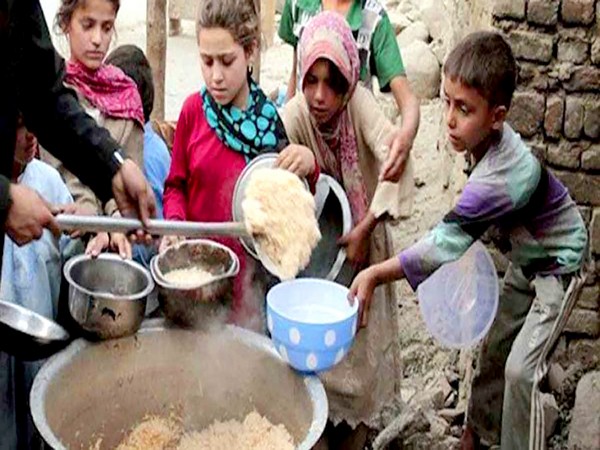Islamabad [Pakistan], April 1 (ANI): Amid the staggering economic crisis, Pakistan’s biggest challenge now is fiscal consolidation and reforms amid a weak coalition government and political instability stemming from accusations of electoral fraud, the Washington-based Institute of International Finance (IIF) has said, Dawn reported on Monday.
IIF is a global association of financial institutions comprising the world’s largest commercial and investment banks, insurance companies and investment management firms.
“The biggest challenge will come from fiscal consolidation,” the IIF said, noting that this was an area of particular importance, as large fiscal deficits have led to public debt increasing from 55pc of GDP in the fiscal year 2009-10 to 79 pc in 2022-23.
“New estimates now show an overall fiscal deficit of 8.1pc of GDP and a primary deficit of 0.2pc of GDP,” the IIF said. This coincided with a Ministry of Finance report stating that the seven-month fiscal deficit increased to 2.6pc of GDP (PKR 2.721 trillion) from 2.3pc of GDP (PKR 1.974 trillion) last year, although the contained primary expenditures helped in improving the primary surplus to PKR 1.939 trillion from PKR 945 billion last year.
The IIF noted that historical precedence, along with a politically weak government, meant that risks were tilted to the downside. There is a high chance that the PKR 9.4 trillion tax-revenue target will be missed, while further expenditure and significant subsidy cuts will be difficult, the IIF said. The IIF forecasted “a primary deficit of 0.3pc.
It also highlighted the instability in Pakistan politics and said that Imran Khan’s popularity in the country put him at odds with the powerful military.
“Turbulent, unstable politics will add to the risks facing Pakistan,” the IIF said. Fraught elections characterised by the suspension of cellular service during the elections, a large delay in releasing results, mass protests, a deadly bombing, and failure to allocate reserved seats to PTI-backed independents have exasperated tensions within the country, Dawn reported.
“It is clear that Imran Khan is the most popular politician in Pakistan. This puts him at odds with the powerful military,” it said.
The report anticipated the tensions between the two sides to continue escalating, most likely leading to another round of heavy military crackdown on PTI-backed politicians and supporters. Added to this is the weak nature of the coalition government.
“The PPP seems reluctant to sign on to politically costly reforms. Without their support, it is hard to see a way forward for the PML-N, which could hinder or prolong negotiations with the IMF,” the IIF said.
It said the historical precedence did not bode well for either the government or a new IMF programme. “To date, no prime minister [in Pakistan] has ever finished their five-year term, while Pakistan is currently in its 23rd IMF programme since 1958. A horrible track record that shows no signs of being broken any time soon”, it observed, Dawn reported.
“Close to USD 90 billion in public debt is set to mature in FY24, a large part of which is expected to be rolled over,” the IIF said, Dawn reported.
This delicate financing picture makes a new IMF programme all the more imperative, especially considering that countries that have previously aided Pakistan with official lending — such as Saudi Arabia, the UAE, and China– are now making financing contingent on an IMF programme. (ANI)
Disclaimer: This story is auto-generated from a syndicated feed of ANI; only the image & headline may have been reworked by News Services Division of World News Network Inc Ltd and Palghar News and Pune News and World News
HINDI, MARATHI, GUJARATI, TAMIL, TELUGU, BENGALI, KANNADA, ORIYA, PUNJABI, URDU, MALAYALAM
For more details and packages











